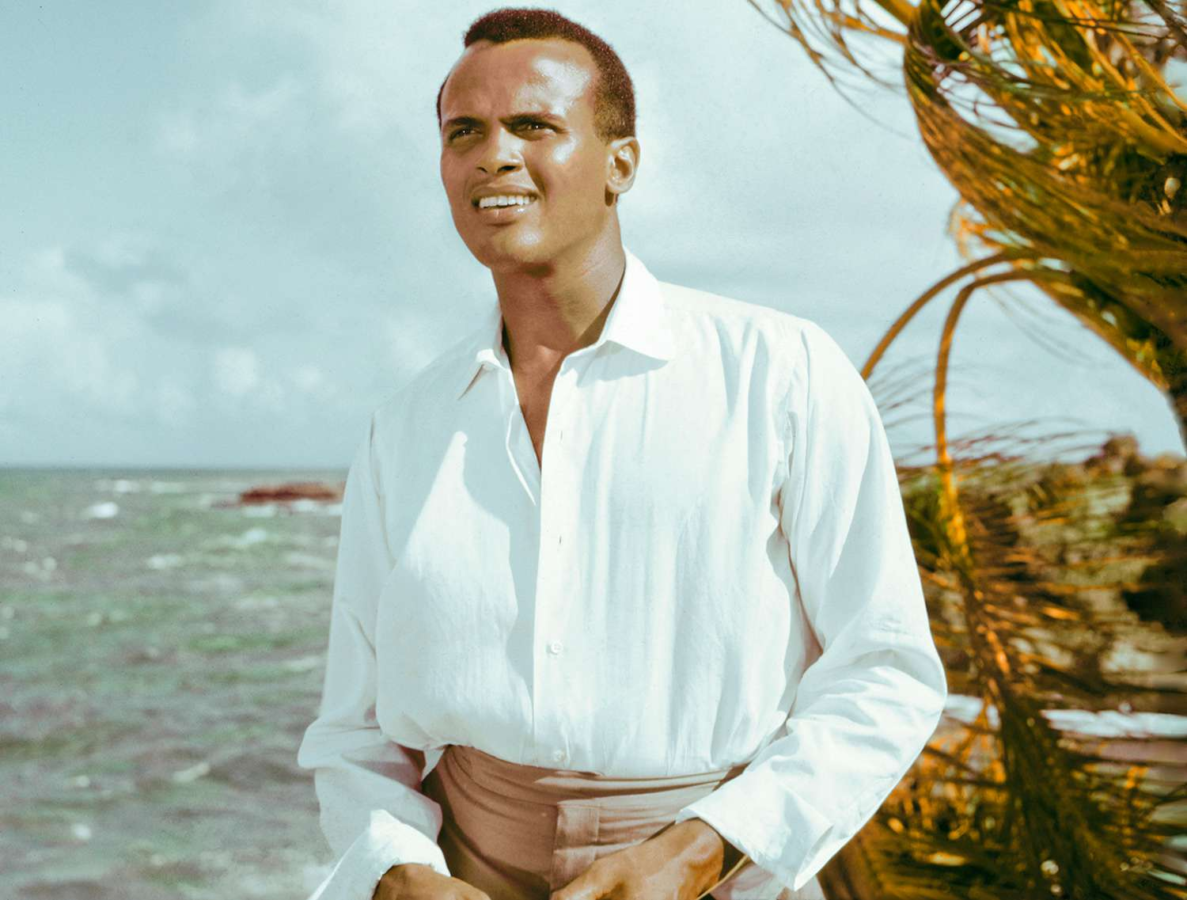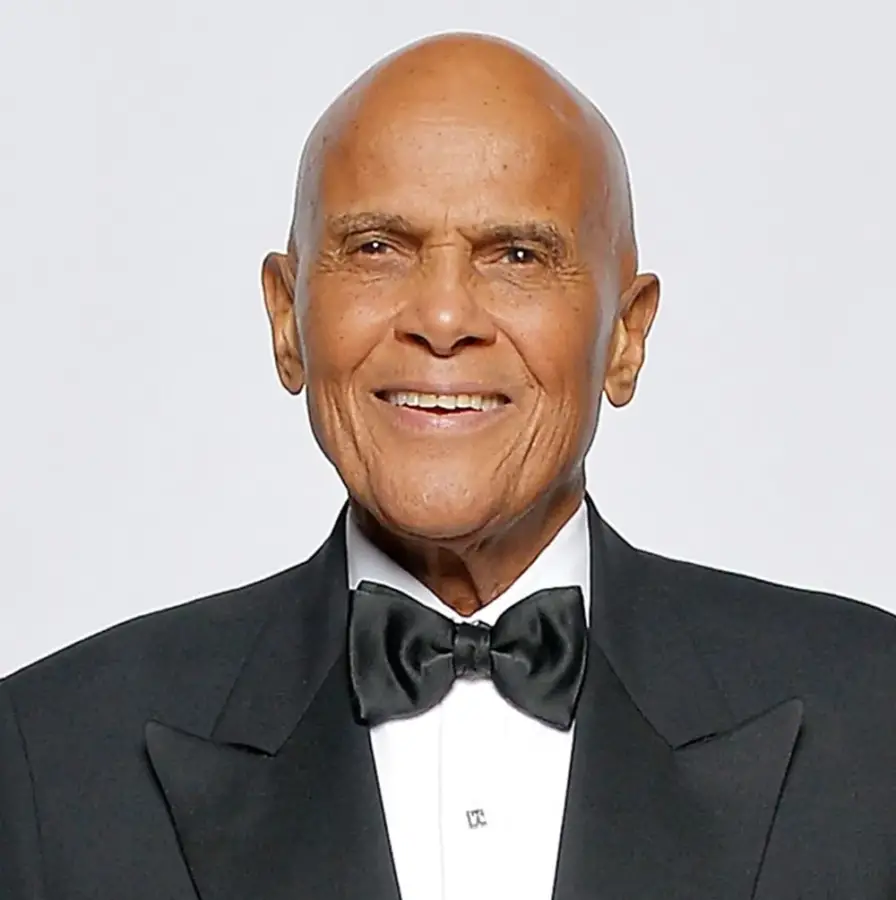Harry Belafonte, a legendary singer, actor, and activist, was born on March 1, 1927, in Harlem, New York, to Jamaican parents. Growing up in poverty, Belafonte developed a strong sense of social justice, which would become a driving force in his life and career. He dropped out of high school to join the U.S. Navy during World War II and later studied drama at the New School for Social Research in New York City.

Musical Success and Activism
Belafonte began his career in the arts as a singer in the late 1940s, performing in clubs and coffeehouses in New York City’s Greenwich Village. He soon became a sensation, thanks to his unique blend of African-American, Caribbean, and Latin American rhythms, and his powerful and soulful voice. He signed a recording contract with RCA Victor in 1952 and released his debut album, “Calypso,” in 1956. The album featured the hit single “Day-O (The Banana Boat Song),” which became a worldwide sensation and helped to popularize calypso music in the United States.
Belafonte’s success as a recording artist led to opportunities in film, television, and on stage. He made his film debut in the musical “Carmen Jones” in 1954 and went on to star in movies such as “Island in the Sun,” “Buck and the Preacher,” and “Uptown Saturday Night.” He also appeared on television in variety shows and specials and had a successful career as a stage actor, earning a Tony Award for his performance in the musical “John Murray Anderson’s Almanac” in 1954.
But Belafonte was much more than an entertainer. He was a committed activist who used his fame and influence to fight for social justice and civil rights. He was a close friend of Dr. Martin Luther King Jr. and played a crucial role in the civil rights movement of the 1950s and 1960s. Belafonte helped to fund and organize the Freedom Rides, which challenged segregation on interstate buses and trains, and he was a key organizer of the March on Washington in 1963, where King delivered his famous “I Have a Dream” speech.

Harry Belafonte’s Activism
Harry Belafonte also used his platform to raise awareness of other social issues, such as poverty, racism, and police brutality. He was a vocal critic of the Vietnam War and supported numerous causes, including the anti-apartheid movement in South Africa and the fight against HIV/AIDS. He founded the USA for Africa charity in 1985, which raised millions of dollars for famine relief in Ethiopia.
Belafonte’s activism earned him both admiration and criticism. He was placed on the FBI’s list of “security threats” in the 1960s, and he was criticized by some for his close ties to communist organizations. But he remained steadfast in his commitment to social justice and never wavered in his beliefs.
Legacy and Passing
Belafonte’s contributions to the arts and to society as a whole were recognized with numerous awards and honors throughout his life. He was awarded the National Medal of Arts in 1994 and the Kennedy Center Honors in 1989. In 2014, he received the Jean Hersholt Humanitarian Award from the Academy of Motion Picture Arts and Sciences for his activism and philanthropy.
Belafonte’s death on April 25, 2023, at the age of 96, was met with an outpouring of grief and tributes from fans, friends, and colleagues. In a statement, it was written that Belafonte’s death is a significant loss to the world, as he was not only a cultural icon but also a humanitarian. He was a trailblazer who used his platform to bring about change and make a positive impact on society. Belafonte’s commitment to social justice and civil rights has inspired generations of activists and artists, and his legacy will continue to be felt for years to come.

Belafonte’s activism was rooted in his personal experience of growing up in poverty and facing discrimination as a black man in America. He used his success in the arts to fight for the rights of marginalized communities, and his dedication to the cause never wavered. Belafonte was a tireless advocate for racial equality, and his close friendship with Dr. Martin Luther King Jr. played a crucial role in the civil rights movement. He helped to fund and organize the Freedom Rides, which challenged segregation on interstate buses and trains, and he played a key role in the March on Washington, where King delivered his famous “I Have a Dream” speech.
Belafonte also used his platform to raise awareness of other social issues, including poverty, police brutality, and the HIV/AIDS epidemic. He founded the USA for Africa charity in 1985, which raised millions of dollars for famine relief in Ethiopia. Belafonte’s contributions to the arts were just as significant as his activism. He was a gifted singer and actor who achieved great success in both fields. His unique blend of African-American, Caribbean, and Latin-American rhythms made him a sensation, and his powerful and soulful voice touched the hearts of millions around the world.
Belafonte’s career spanned more than seven decades, and he received numerous awards and honors for his work. He was awarded the National Medal of Arts in 1994 and the Kennedy Center Honors in 1989. In 2014, he received the Jean Hersholt Humanitarian Award from the Academy of Motion Picture Arts and Sciences for his activism and philanthropy. Belafonte’s death is a reminder of the importance of using one’s talents and influence to make a positive impact on the world. He leaves behind a legacy of social justice, cultural significance, and artistic excellence that will continue to inspire future generations.
More News:
• Who was Whitney Houston? How did Whitney Houston die?
• Who is the husband of star Jennifer Love Hewitt? Is she pregnant again in 2023?
• Who is Chris Hayes? Learn all about the MSNBC star’s family, net worth, career and more

